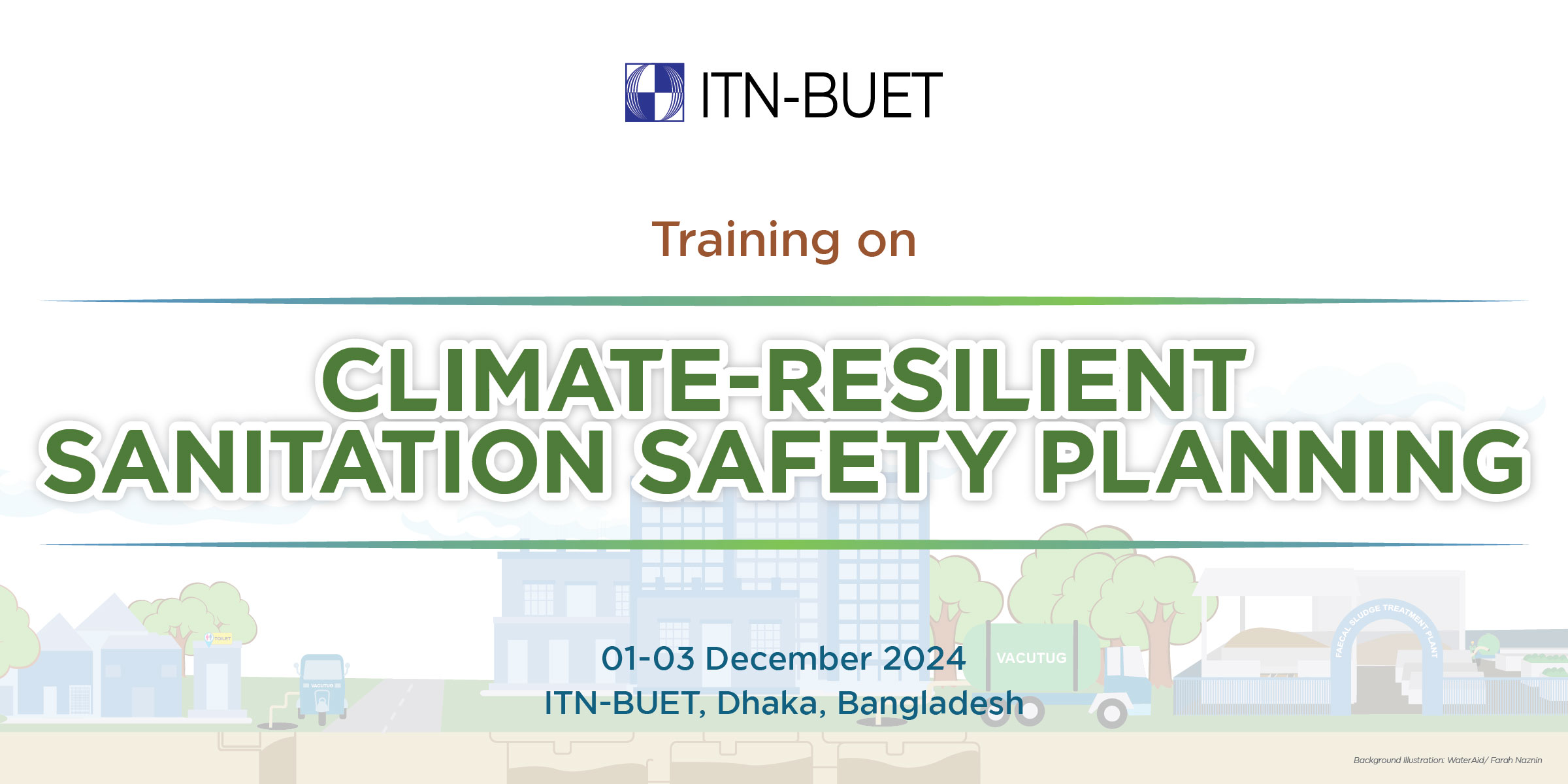Training on Climate-Resilient Sanitation Safety Planning
December 01 @ 09:00 am - December 03 @ 05:00 pm UTC+6
About the Training
Sanitation efforts in developing countries often prioritize building toilets (hardware) over public health outcomes. A more comprehensive approach is needed, integrating public health considerations into sanitation planning and infrastructure development. Sanitation Safety Planning (SSP) is a risk management tool for sanitation. It gathers stakeholders from various sectors to identify health risks throughout the sanitation system. Together, they agree on improvements and monitor progress. This ensures control measures target the biggest risks, leading to gradual improvements over time. Climate-resilient Sanitation Safety Planning (CR-SSP) is a process that helps communities improve their sanitation systems in a way that can withstand the effects of climate change. Climate change can increase the risk of flooding, droughts, and other extreme weather events, which can damage sanitation systems and lead to the spread of disease. CR-SSP helps communities identify these risks and develop strategies to mitigate them. ITN-BUET is going to organize a three-day training program on ‘Climate-resilient Sanitation Safety Planning (CR-SSP)’ for safely managed sanitation systems. This three-day training program will emphasize the crucial link between understanding health risks and effective sanitation management and investment. It aligns with WHO’s 2022 and 2018 guidelines, emphasizing risk-based management for sanitation systems.
Objectives
The program aims to establish a pool of national and international sanitation players who have in-depth understanding of SSP’s key concepts and principles. In line with this objective, the program will:
• Help develop an understanding about the SSP process
• Help build an understanding of the procedure for risk assessment and management in line with WHO guidelines on sanitation and health, covering all steps of the sanitation chain, with or without safe end use
• Help gain an understanding about preparing SSP using step-by-step guidance
• Experience practical application of SSP through exposure visit
Who Should Attend?
This course welcomes enrollment from a wide range of participants working in sanitation, public health, environmental improvement, researchers, etc.
Course Fee (Including Training Kits, Food and Field Visit)
National Participants: BDT 20,000
International Participants: USD 500 (With full accommodation)
*Course Fee Included Training Kits, Food and Field Visit
**Upon successful completion of the training program, participants will be granted a one-year complimentary membership to the International Water Association (IWA).
This event has passed.
Details
Start:
December 01 @ 09:00 am UTC+6
End:
December 03 @ 05:00 pm UTC+6
Event Category:
Venue
ITN-BUET
No comment yet.